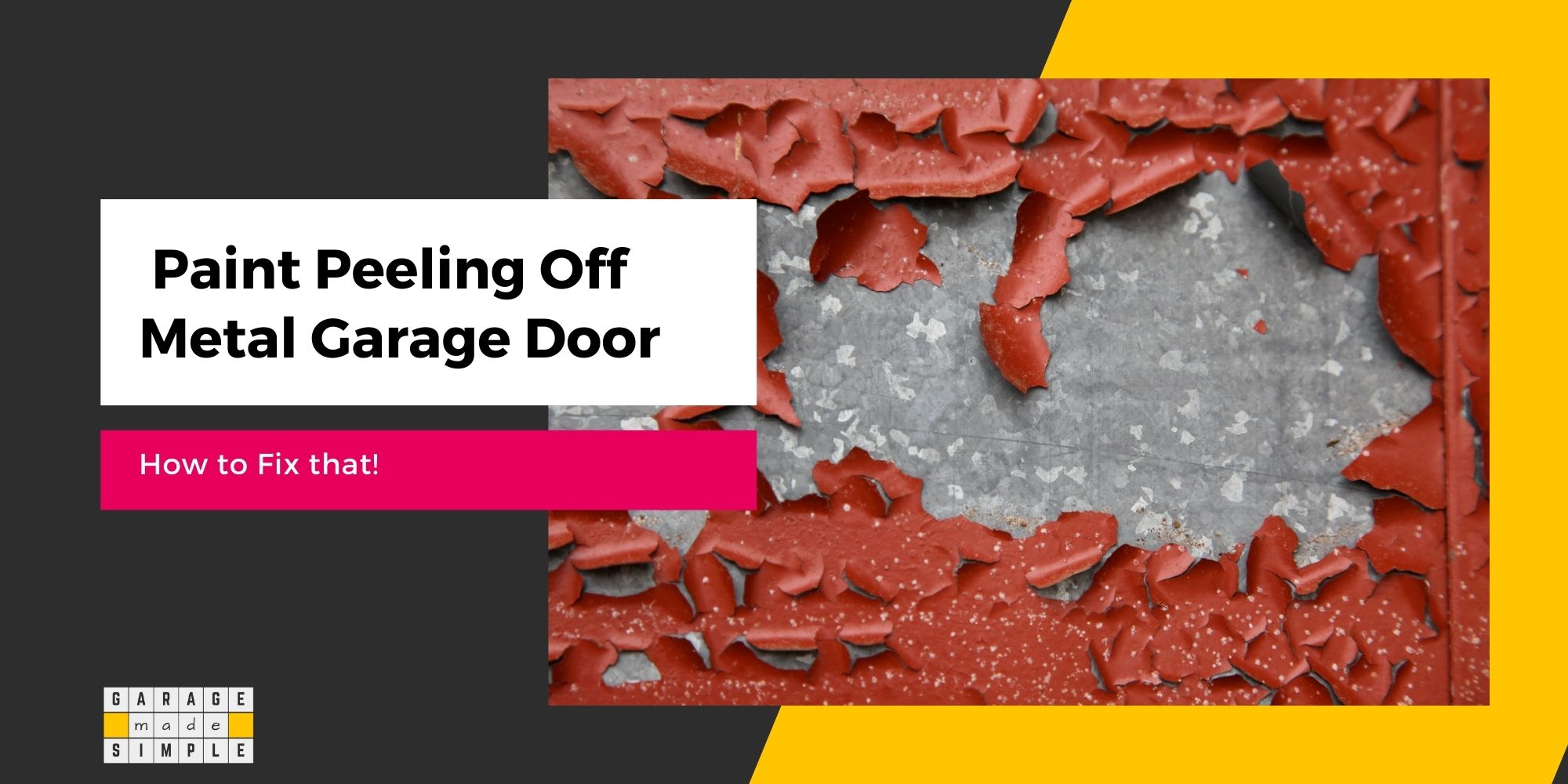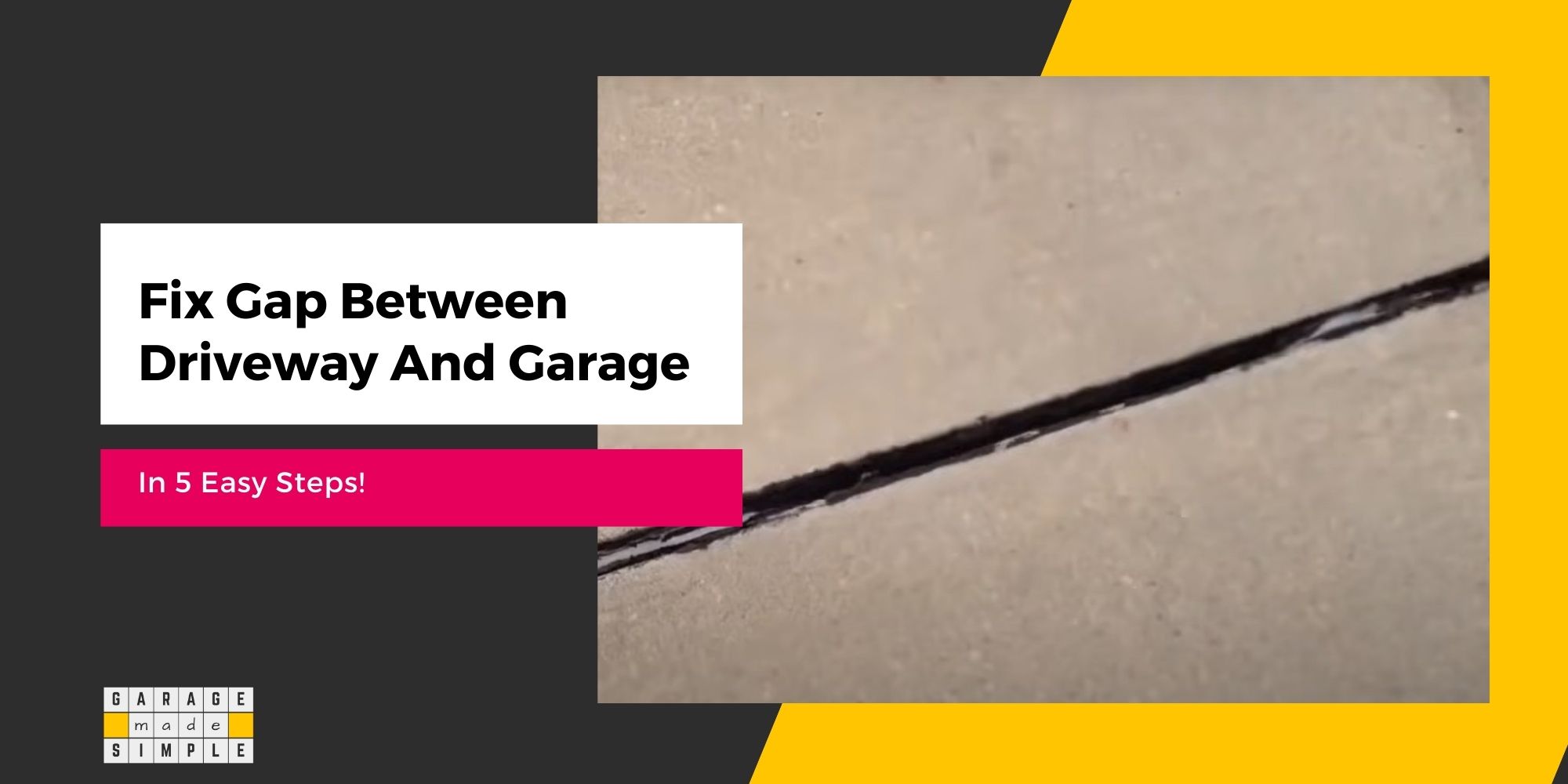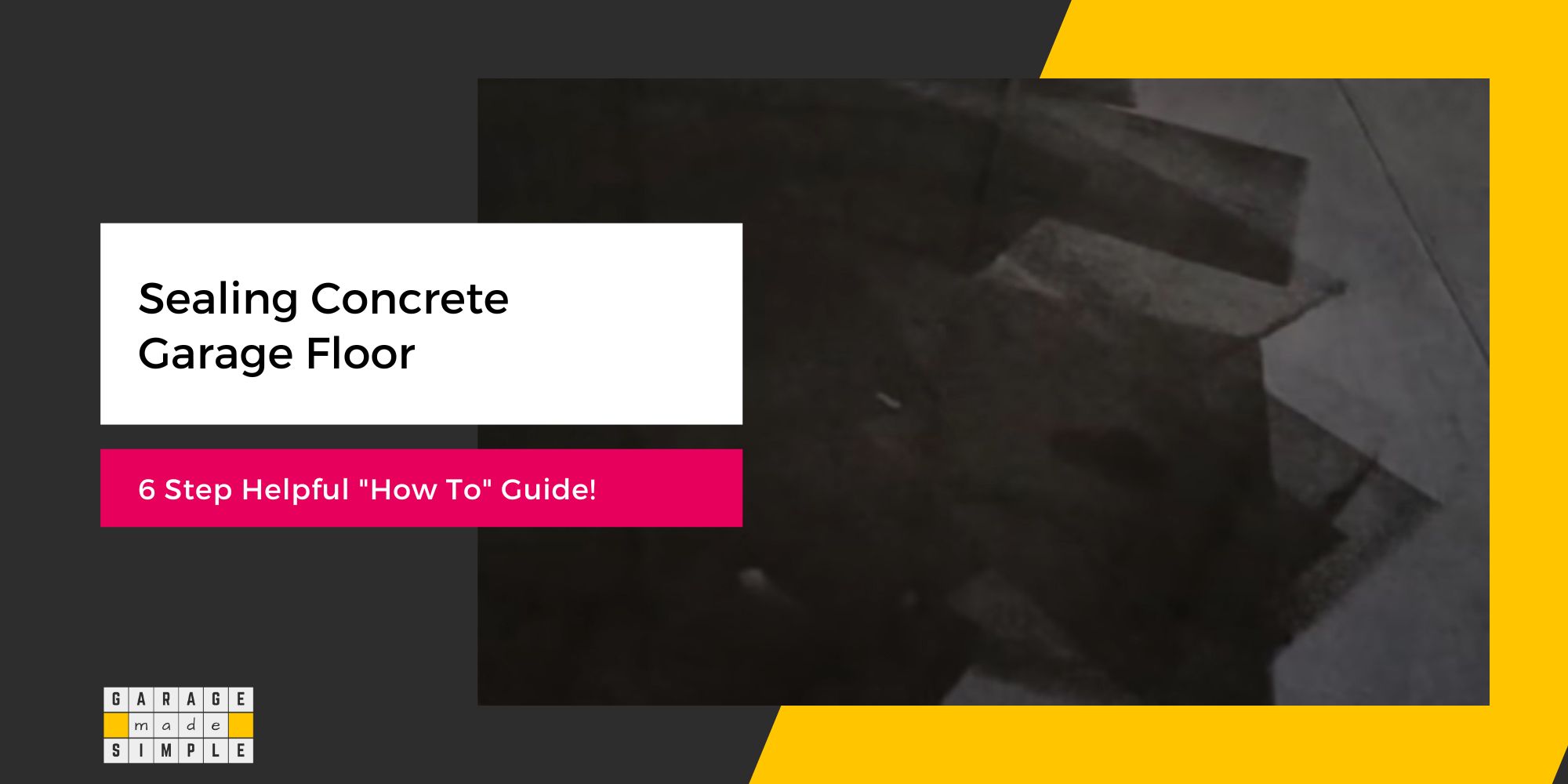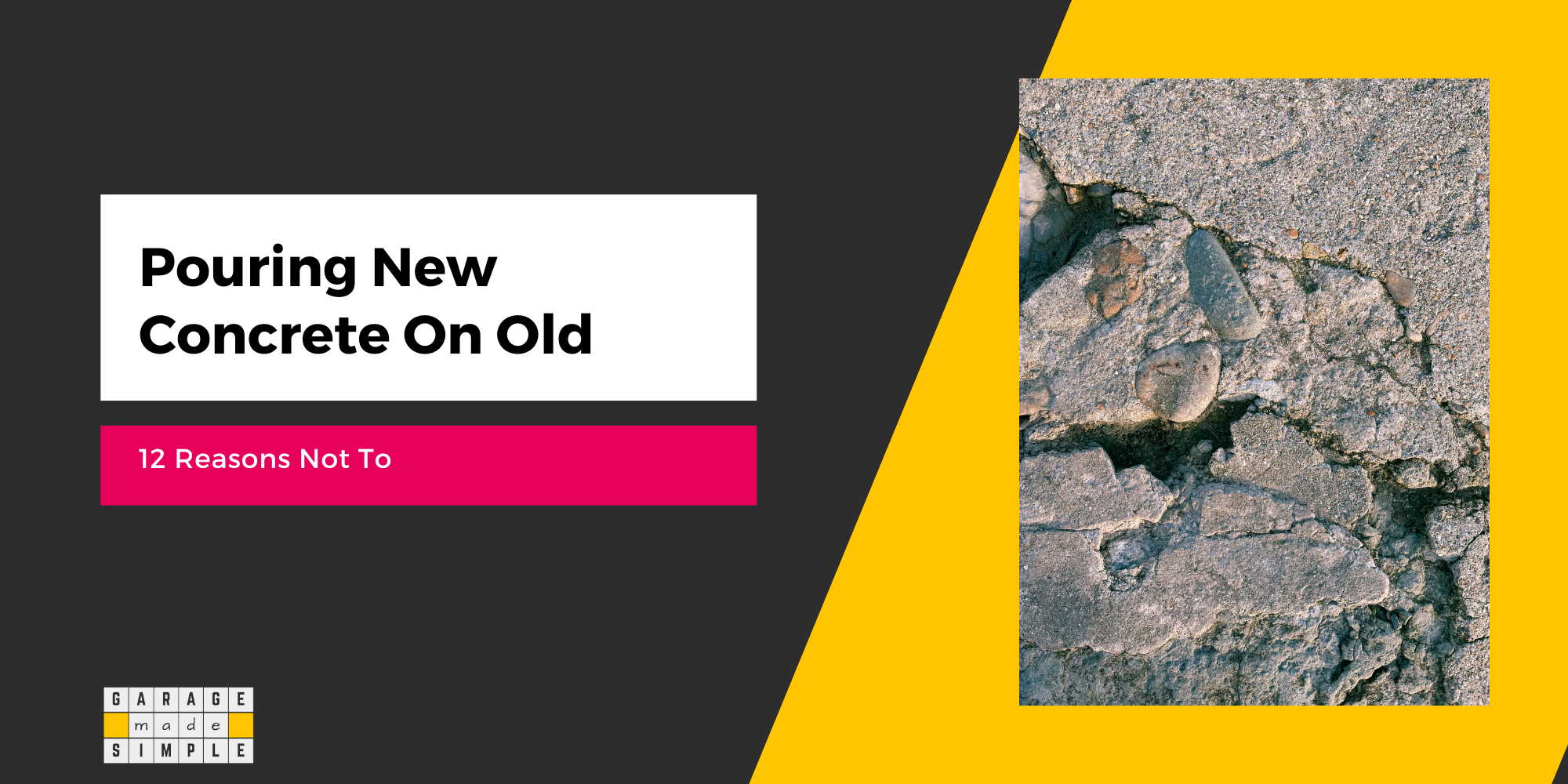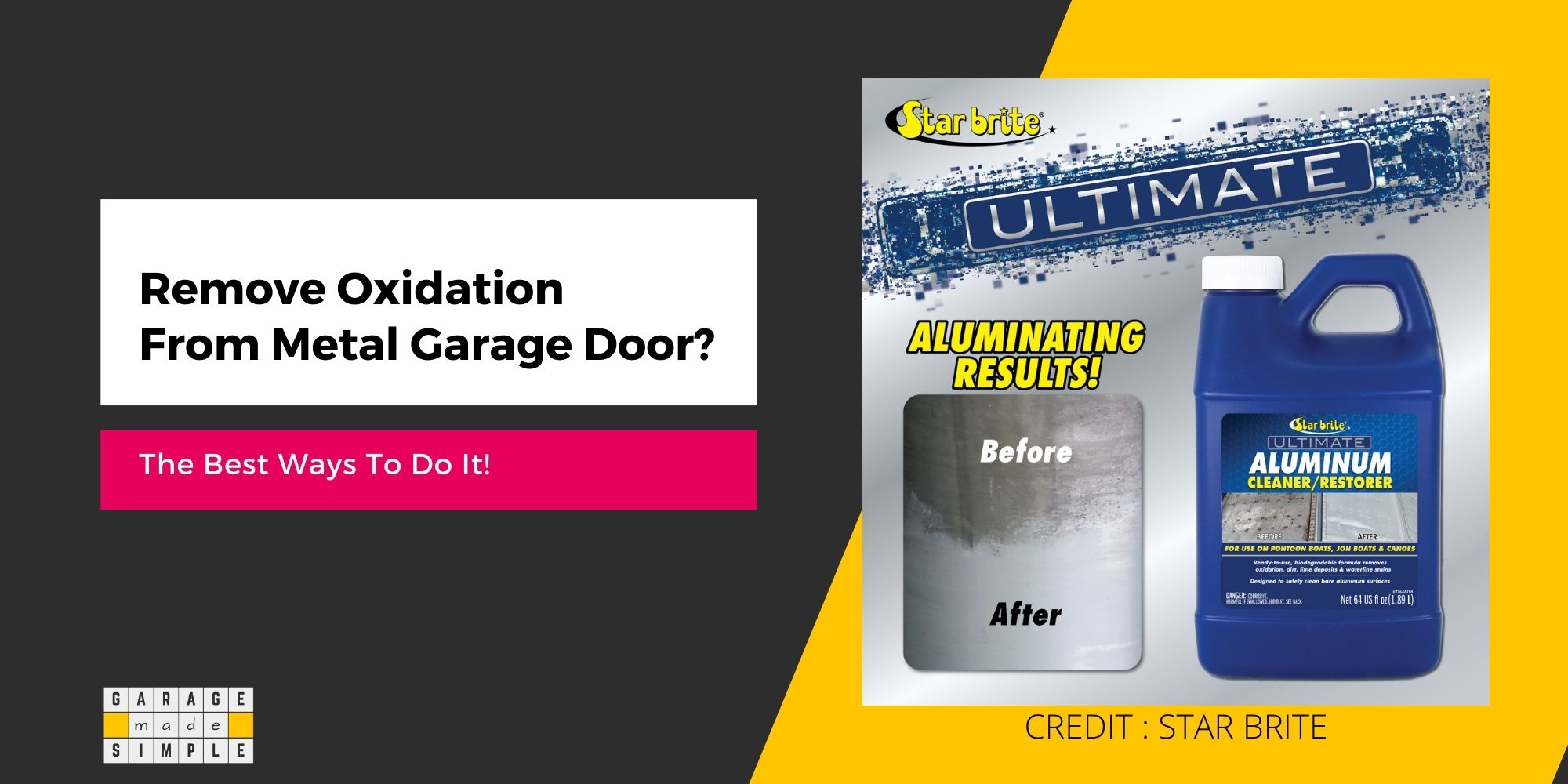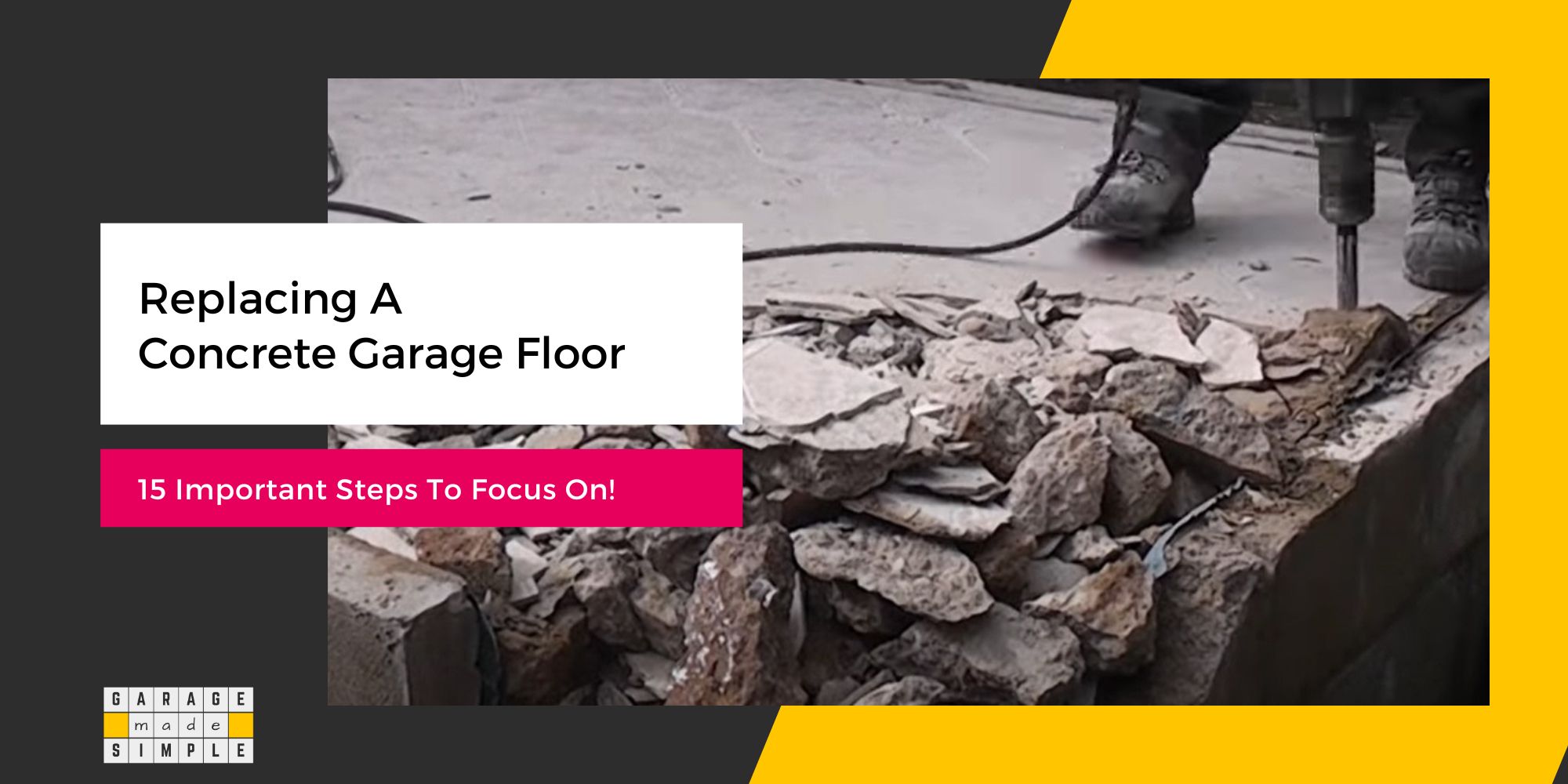6 Concrete Slab Maintenance Tips to Increase Garage Floor Life!
As an Amazon Associate, I earn from qualifying purchases.
How Good Concrete Slab Maintenance Increases Durability?
The life of a garage floor can be 30-50 years provided good concrete slab maintenance practices are rigorously followed. Of course, the concrete slab must have been built on a stable base.

By choosing concrete, you have taken the first step towards making a long-lasting garage floor. But this will not happen just because you chose concrete as the slab material!
The stability, strength, and longevity of a concrete slab depend primarily on the quality of the “soil support system”. The soil support system consists of the subgrade, the sub-base, and the base.
The 4 important factors that affect the life of a concrete garage floor are:
- Soil Support System
- Concrete Strength
- Reinforcement
- Curing Conditions
So how do you ensure that your concrete garage floor is installed in a manner that it will really last?
Soil Support System
The soil support system below the concrete slab, not only takes the load of the vehicles but also prevents ground movement from damaging the concrete slab. There are 5 steps involved in building up a good soil support system.
STEP 1 – Subgrade: is native soil tamped to a firm finish. In case the quality of the native soil is not very good, improve it by adding a couple of inches of good-quality topsoil or treating it with cement or lime.
STEP 2 – Geotextile: prevents the migration of crushed stone or gravel from the sub-base into the subgrade.
STEP 3 – Sub-base: should be 4” – 6” thick and comprise several layers of compacted crushed stone or angular gravel.
STEP 4 – Base: should be 2” thick and made up of a layer of pea gravel topped by a layer of coarse sand.
STEP 5 – Vapor Retarder: prevents ground moisture from permeating into the concrete.
Concrete Slab-on-Grade
The other element of a long-lasting concrete garage floor is the concrete slab-on-grade. Make sure to ensure the following for a strong and durable concrete slab.
- Use concrete with a compressive strength of 3500 psi in warm climates and 4000 psi in cold climates. Higher strength is required to deal with stress caused by freeze-thaw cycles.
- A water-to-cement ratio of 0.50 or slightly less is required to achieve the required compressive strength.
- Use crushed stone aggregates of size 1” or less. A mix of Crushed Stone 57 and Crushed Stone 67 is a good option.
- Pour concrete that has a Slump of 4” – 5”.
- Keeping Air Entrapment at 6% in cold climates helps lower the stress of freeze-thaw cycles.
- Keep the slab thickness at 6” or more. Reinforce it with steel rebars.
- Ensure proper curing. Full curing of concrete typically takes 28 days.
- Seal the concrete slab after it has fully cured.
6 Tips for Concrete Slab Maintenance
Installing a concrete garage floor with a high-quality soil support system and a concrete slab-on-grade with enough compressive strength and reinforcement is just the beginning of a long-lasting concrete garage floor.
But to really get the maximum out of your investment, regular concrete slab maintenance and timely repairs are crucial. Here are 6 tips to help you prolong the life of your concrete garage floor.
1. Clean Frequently
Cleaning your concrete garage floor frequently will ensure longevity as well as good looks.
Just use a garden hose, some soap water, and a stiff brush with a long handle to scrub it clean. Cleaning once a week is a good schedule to follow.
It is a good idea to use a pressure washer, every six months. When pressure washing a concrete floor, make sure to use moderate pressure, keep the jet tip moving and at some distance from the concrete surface.
2. Repair Cracks Early
Cracks and concrete go hand-in-hand. The concrete slab has hairline cracks right from the start. Some will grow to become larger as time passes. You must fill up the cracks with a flexible sealant and repair them, as soon as possible.
The longer you wait, the greater is the chance that rainwater mixed with corrosive chemicals will permeate into the concrete, through the cracks, and damage it from within.
3. Fill up Potholes and Sunken Parts
A concrete slab that has a strong well-prepared base is unlikely to have sunken parts or potholes in the beginning. However, they may appear as time passes.
You must fill up and repair the sunken areas and potholes. Water will collect in potholes and ultimately seep into the concrete, weakening and damaging it.
Repairing the potholes in time will prevent them from growing bigger and reducing the life of your concrete garage floor.
4. Clean Gutters & Drains Regularly
Blocked gutters and drains are a source of unwanted water on the concrete garage floor surface. Keep them clean and flowing so that water does not spill over.
5. Reseal Every Year
The resealing of a concrete garage floor is often neglected. However, sealants are not effective after some time and need to be replenished. It is best to reseal your concrete garage floor every year.
Recommended Solvent Based Topical Sealer
Armor AR500 Solvent Based Acrylic Wet Look Sealer
Solvent Based Topical Sealer
- Will enhance dull and faded surfaces with a high gloss wet look.
- Will reduce damage caused by surface abrasion, road salts, water absorption, and exposure to the elements.
- UV resistant, non-yellowing, breathable.
6. Use Non-chemical Deicers
Using deicing chemicals to melt ice faster is certainly very convenient. Unfortunately, many deicing chemicals use salt as their main ingredient. The solution of salt in water is extremely corrosive. It will corrode both the concrete substrate and the steel rebars very quickly.
Avoid using salt-based deicers. Choose to use salt-free or non-chemical deicers instead.
Bottom Line
A well-constructed concrete garage floor can last between 30 to 50 years. However, how long it really lasts will depend on the concrete slab maintenance that you use.
Thank you very much for reading the post. I do hope you found it informative and useful.


